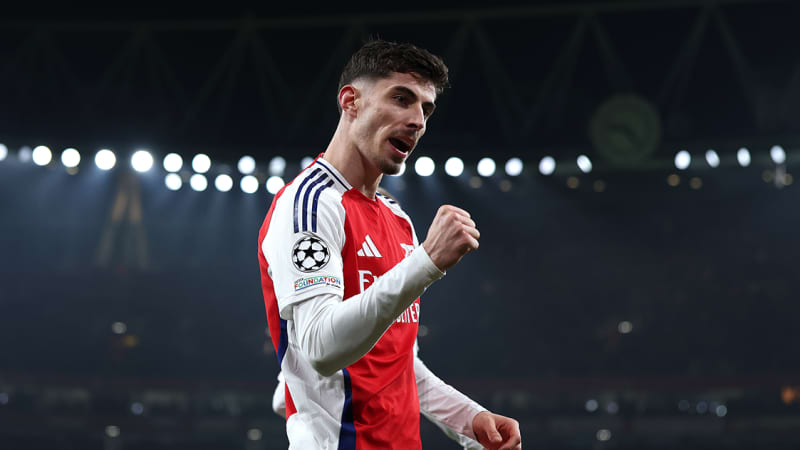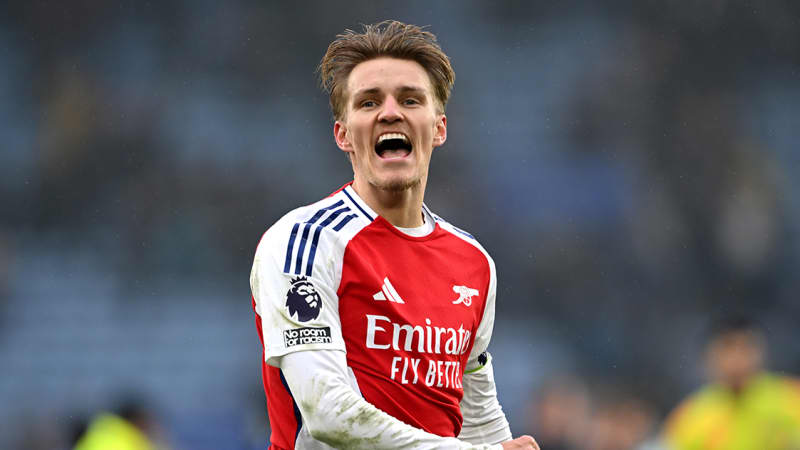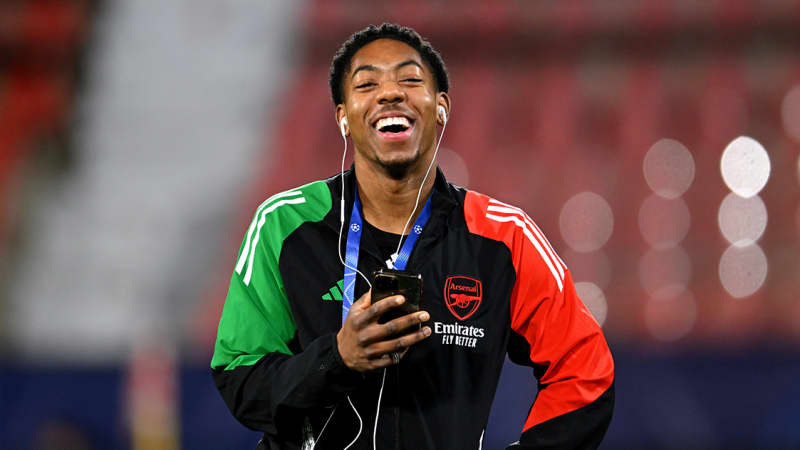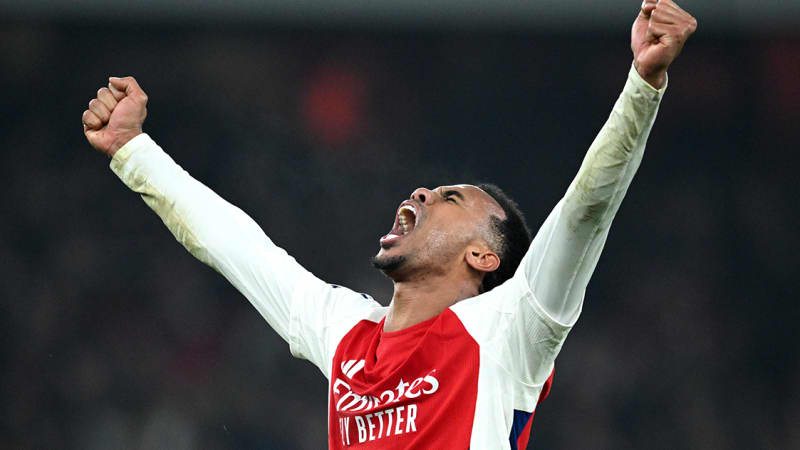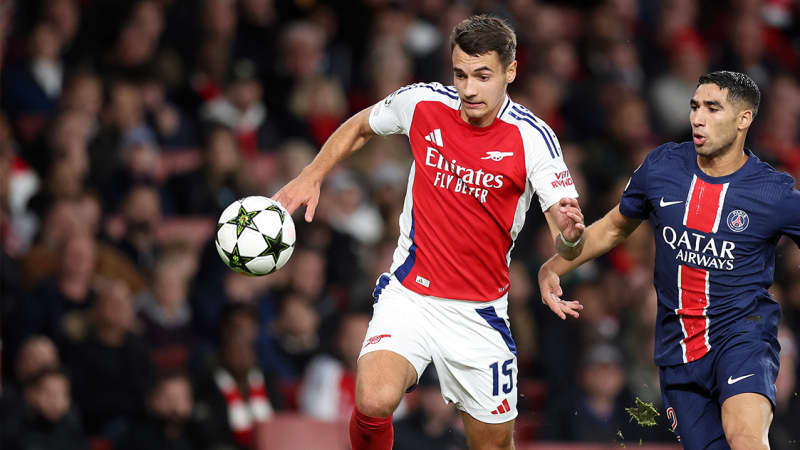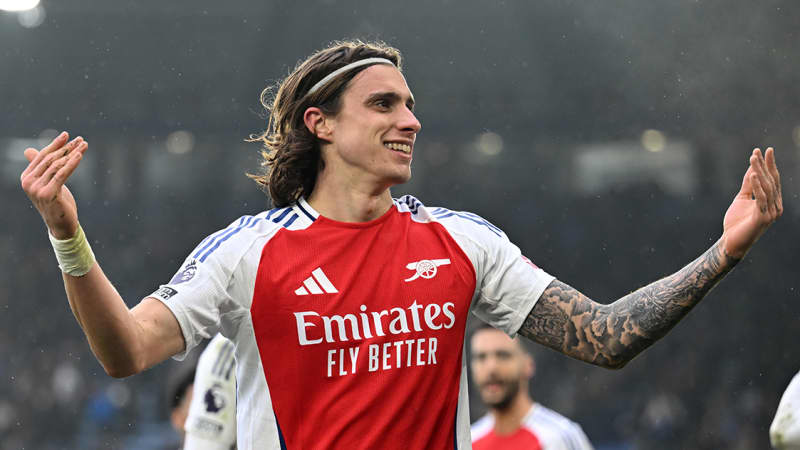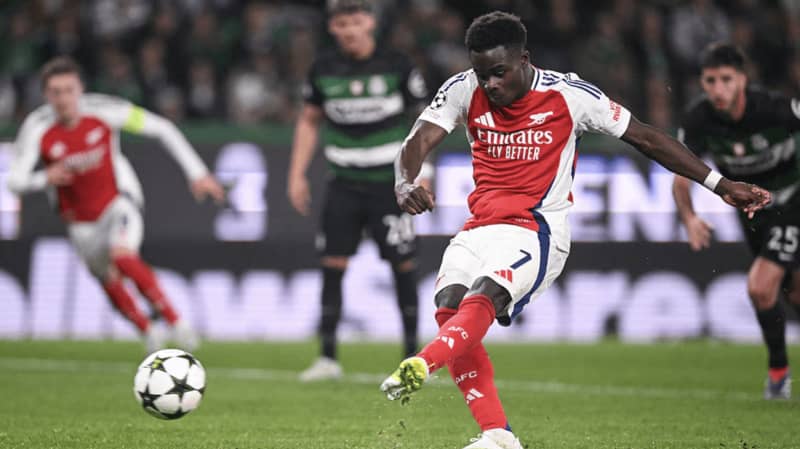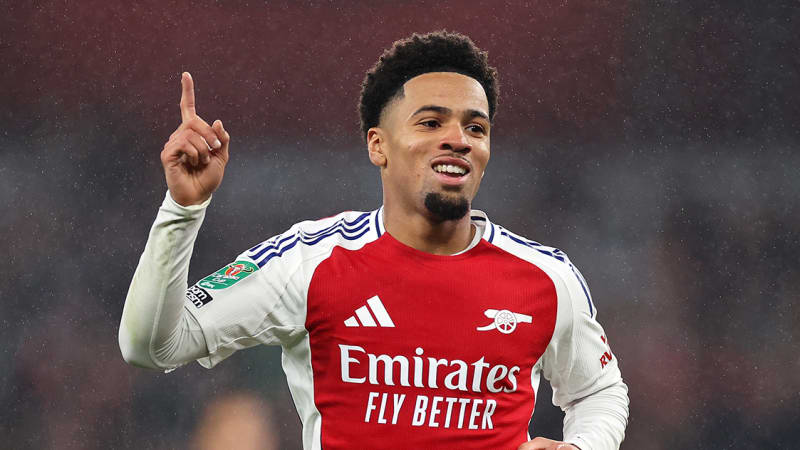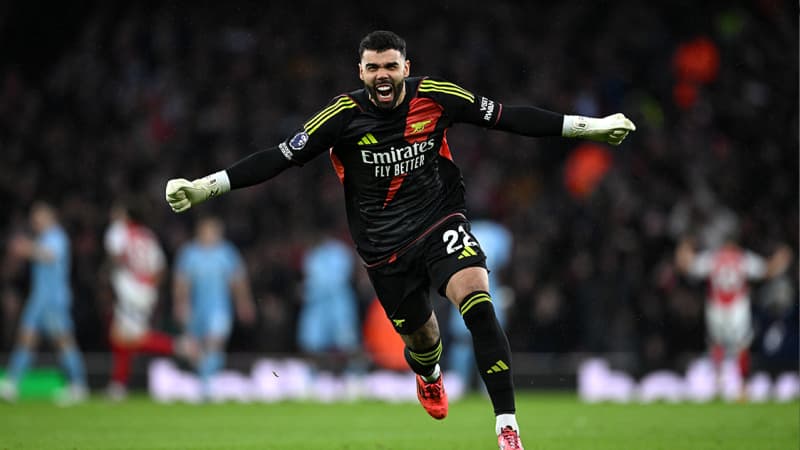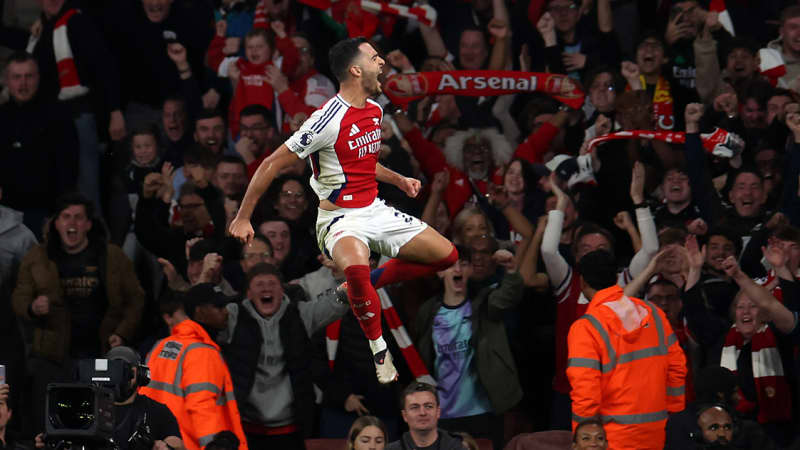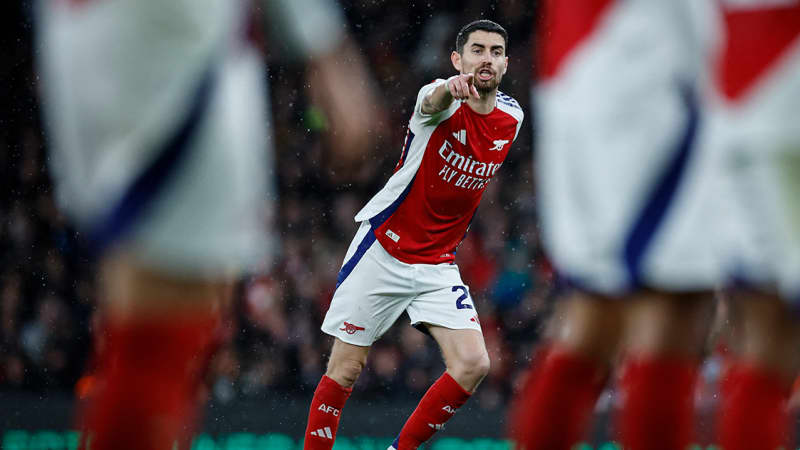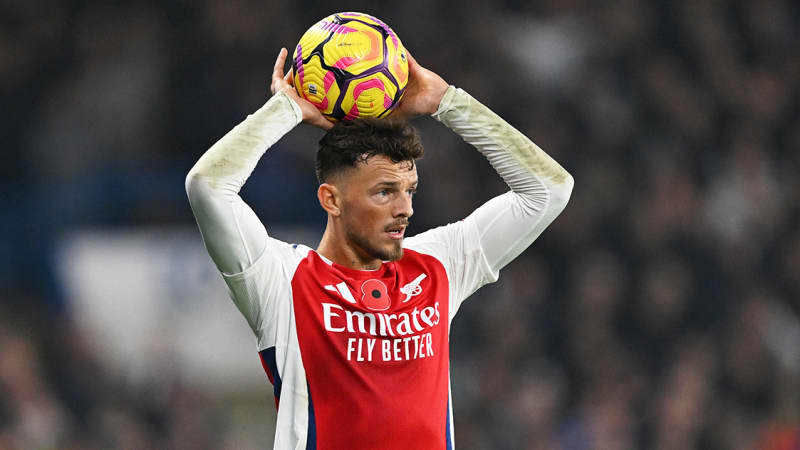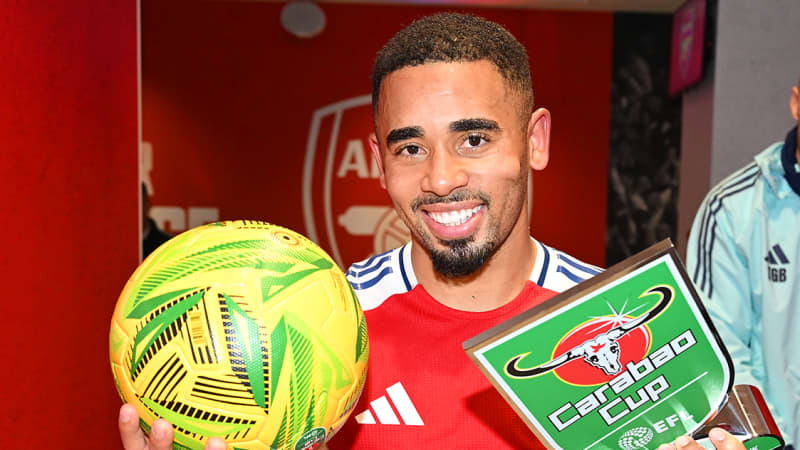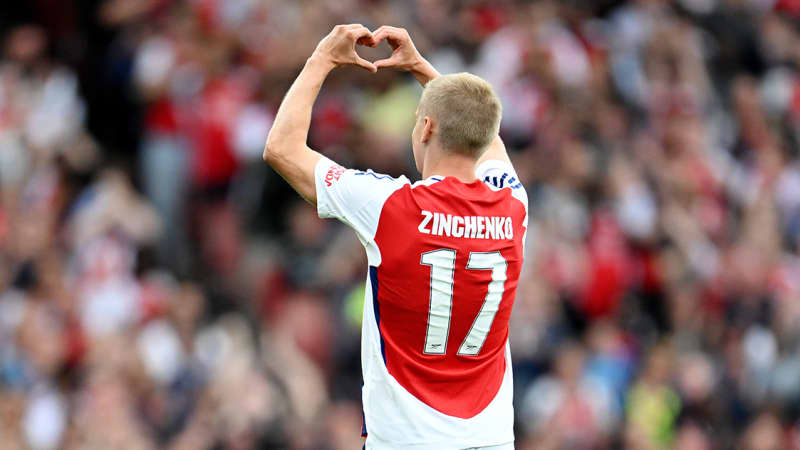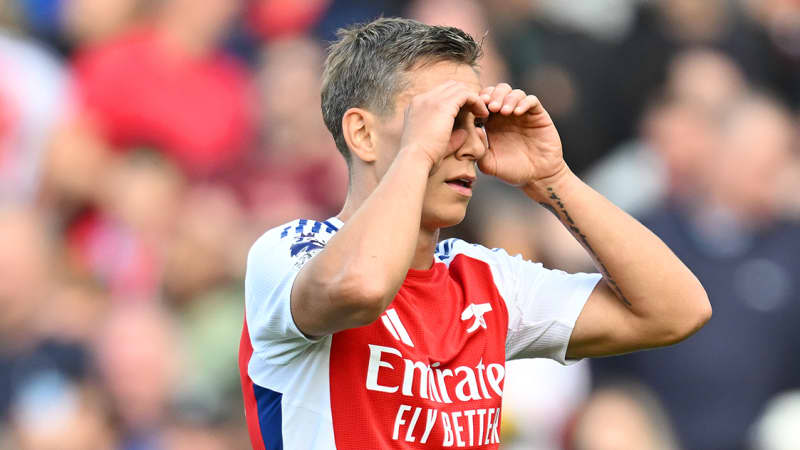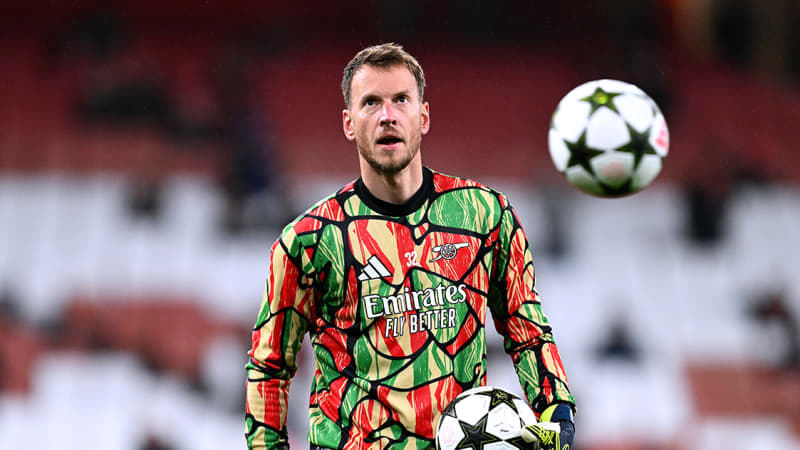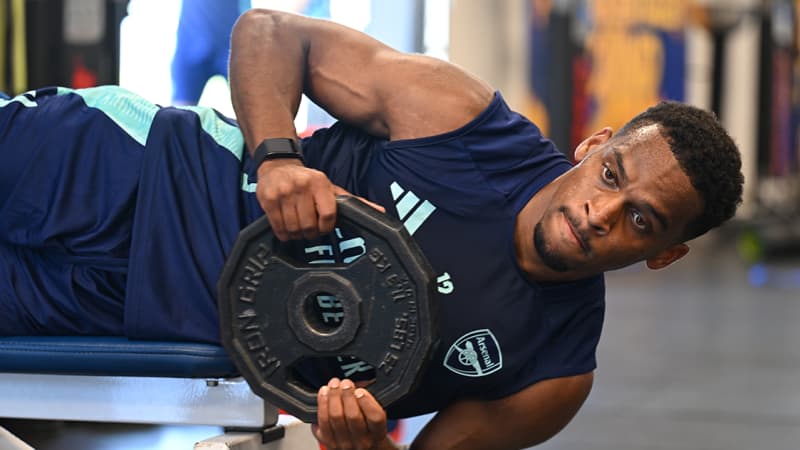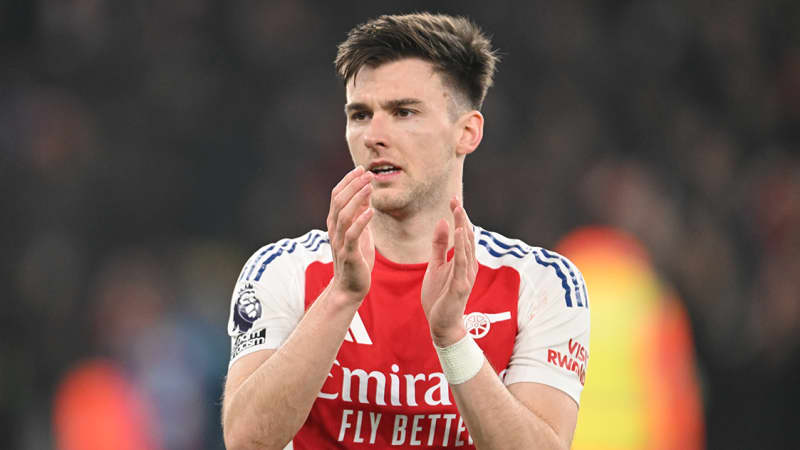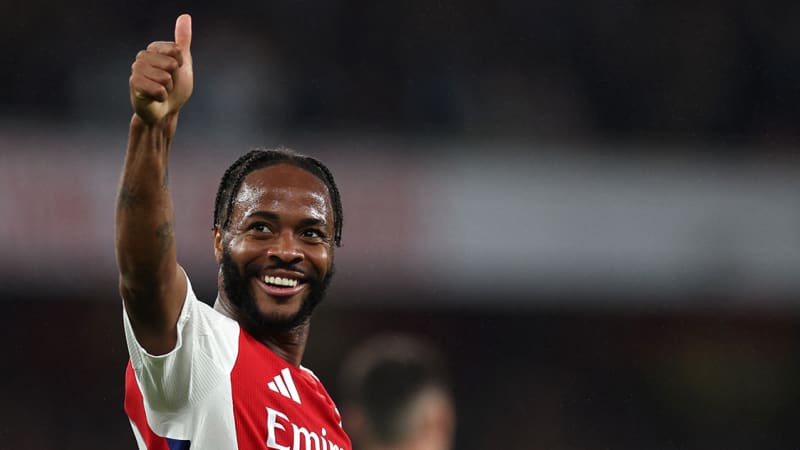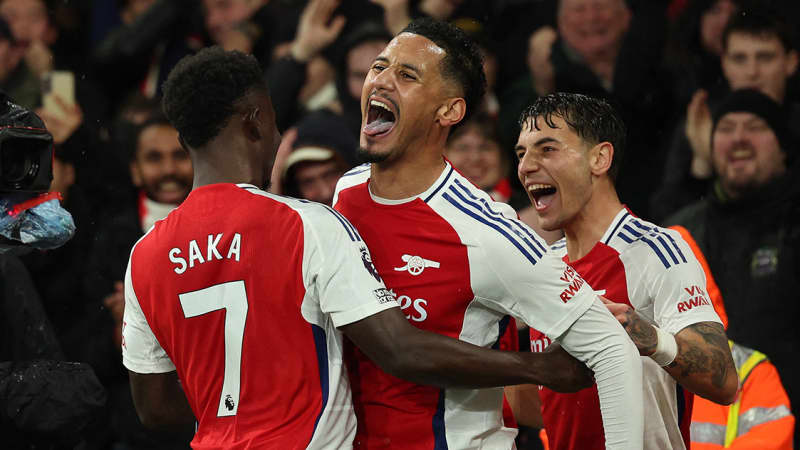Five years of Martinelli: Gabi reflects on his growth
Our Brazilian winger is one of the most feared forwards in the Premier League, but here he looks back on his first steps in north London and the secrets of his success
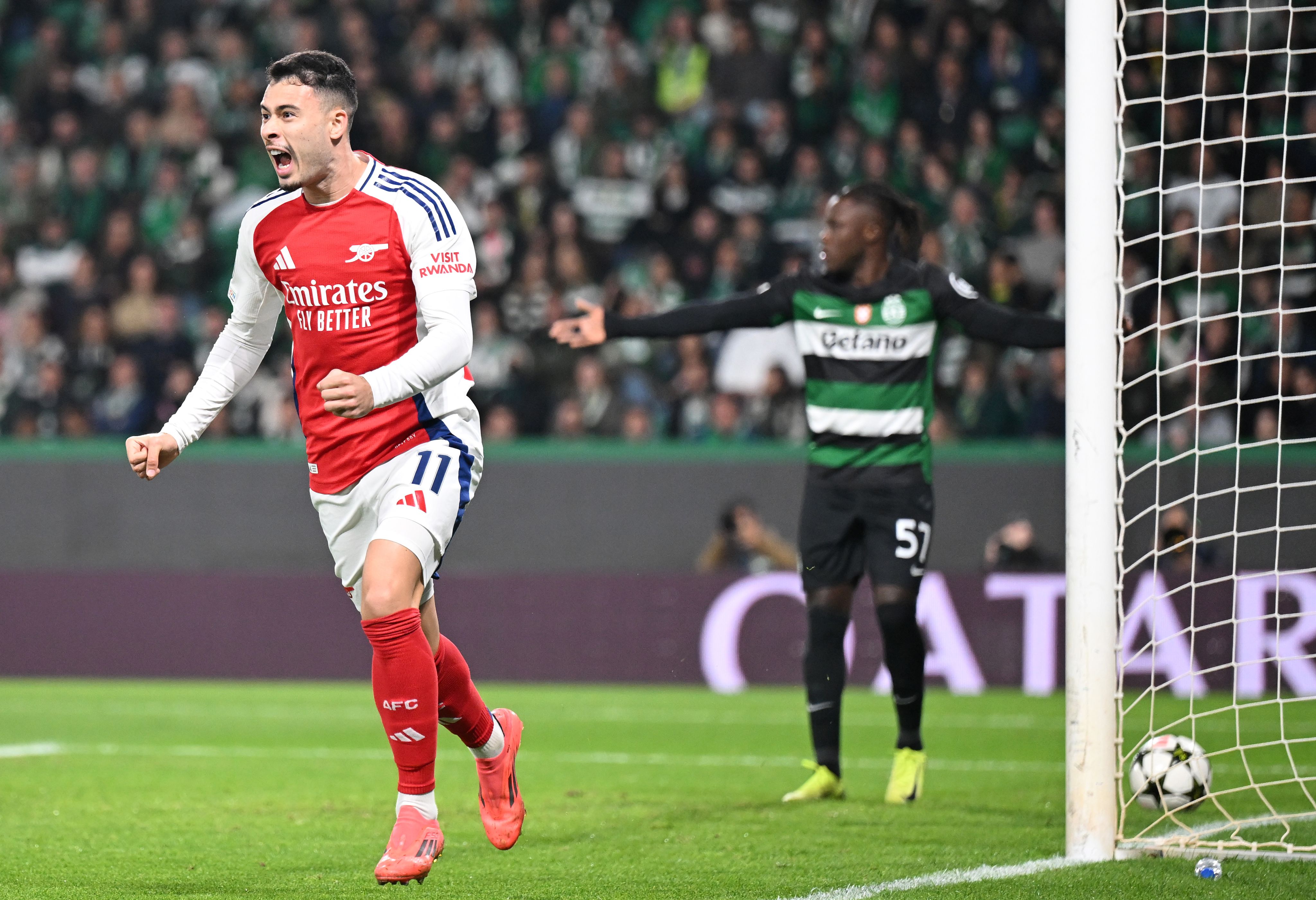

A naturally talented player from a very young age growing up in Sao Paulo, Gabi soon had the importance of professionalism and discipline drilled into him as well. The way he embraced that side of the game helps explain how he managed to make the huge leap from the lower echelons of Brazilian football to the Premier League so smoothly.
But more than that, it also speaks to the way that he’s been able to thrive in English football ever since, steadily becoming one of the most dangerous attacking forces in the league over the past five years or so as he has worked hard to get the best out of his undoubted ability.
The principles he learned in his early days in the sport, Gabi says, are still just as relevant today. “The most important lesson I learned when I was young was about discipline,” he says.
“You need to have that to start. You can have all the top players, all the most skilful ones, but if you are not disciplined, you cannot succeed anywhere. That’s something that’s always with me, and something I learned young.
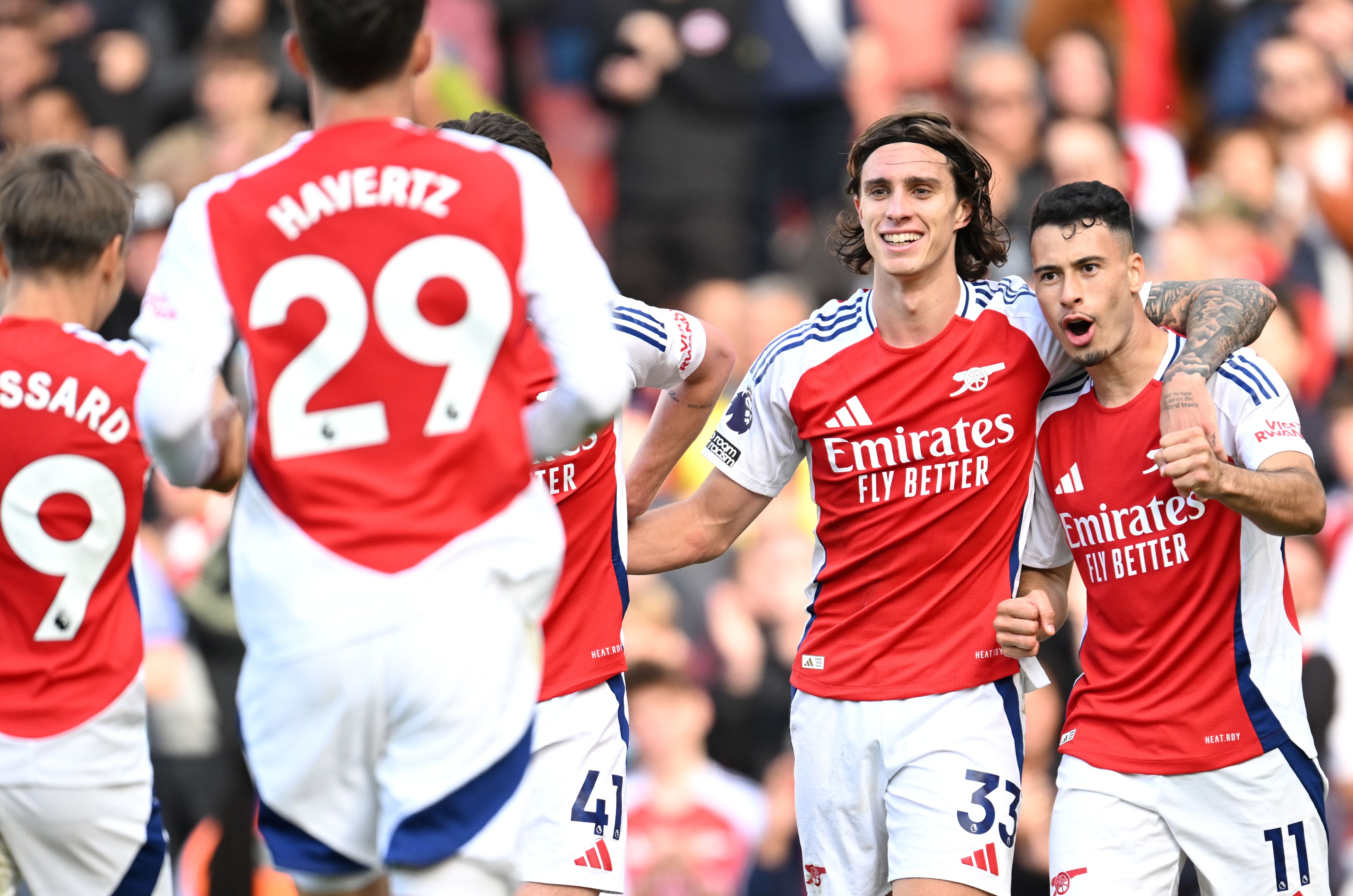
“When I was younger, my dad always spoke to me about professionalism, about being consistent and to always try your best. He used to say to me: ‘You are not going to play well every single game, but you can always try your hardest and give your best every time.’
“If you do that then you are still helping the team in some way, and that’s something I always try to remember when I’m on the pitch. Since I was five or six, when I started playing futsal, I’ve tried to do that and play every game like that.”
Gabi was largely unheard of when he signed for us – initially as part of the youth set-up – shortly after his 18th birthday back in 2019. But far from that being the moment that Gabi thought he had finally “made it”, he said it was a moment of realisation of the importance of professionalism.
“I really learned about that when I arrived at Arsenal and moved to London,” he reflects. “When you are younger you just want to play and have fun, but when I got here you start to realise how hard it is to arrive at a club like this and how hard this level is.
“You realise early what a great opportunity you have at a club like this, how good it is to be here, so you just want to continue with that, and to do that you have to work hard and be disciplined. If you want to be here for years and years, and do your thing, that’s what it takes.
“You have to be professional, and it’s not just the games, but your life between the matches too. Eat well, recover well and do all of those things, because as soon as you don’t do that, you can fall behind."
"if you are not disciplined, you cannot succeed anywhere. That’s something I learned young!"
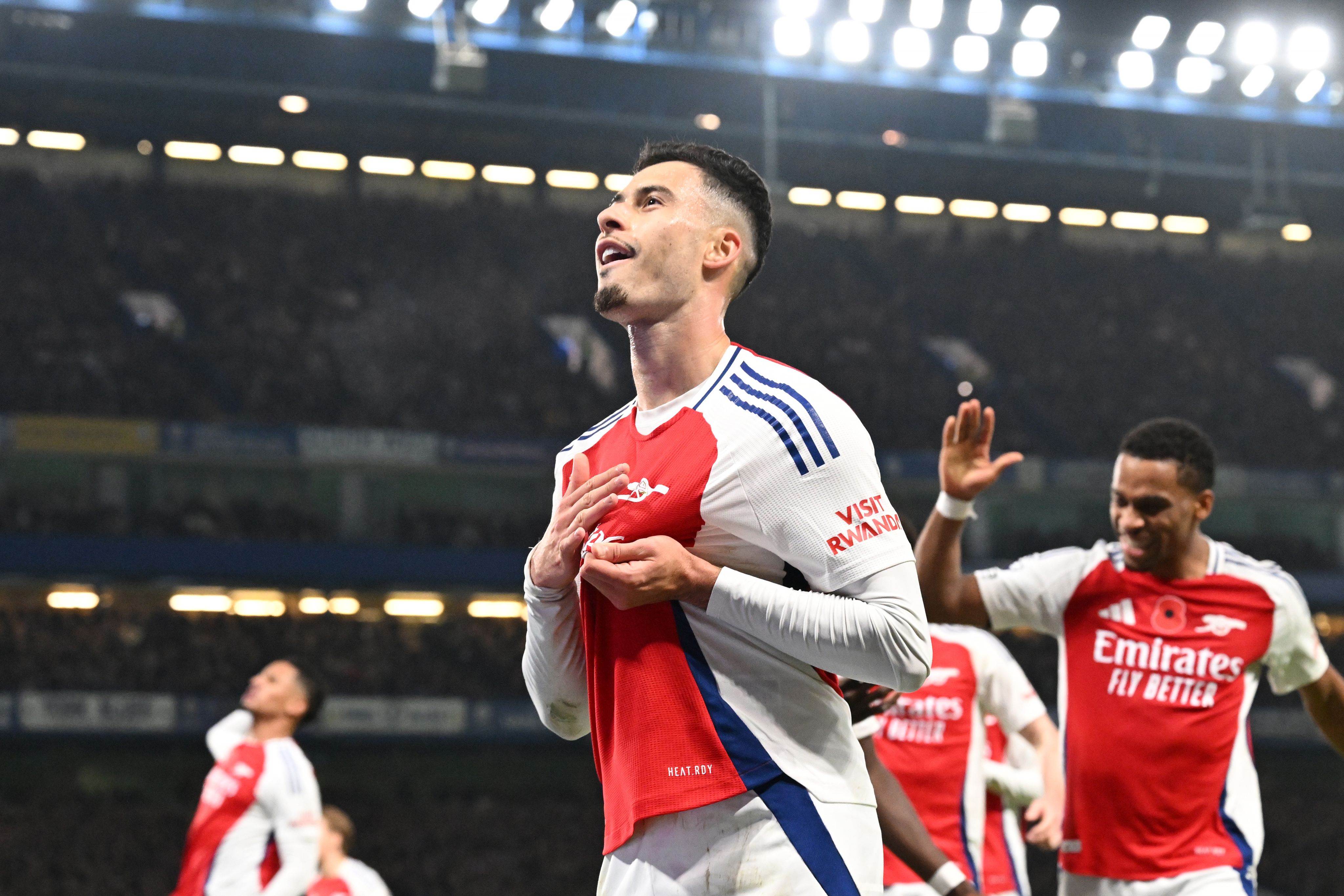

It’s a very enlightened and mature attitude for an 18-year-old just starting out as a professional in the sport to have, so who were the people influencing and educating Gabi at that time?
“My family have always been my biggest influence,” he smiles. “Before I was at Arsenal I was at Ituano in Brazil, not a massive club, so we didn’t have a lot of big, big players to look at.
"When I came to Arsenal I had Emi Martinez next to me, and he helped me a lot. I was 18 when I arrived, and he was so important in my growth and adaptation here. David Luiz as well, he helped a lot because it was all new to me, especially the language.”
The adaption he made at his new club went a long way to helping him succeed in what he was brought here to do: star on the pitch. Handed the squad number 35 when he joined ahead of the 2019/20 season, his place in the first-team squad was far from a certainty.
It was anticipated that much of his football that first season would be played for the under-21s, or even out on loan, but the way he took to training sessions with the first team in his first couple of weeks convinced Unai Emery to take him on pre-season tour in July 2019. Gabi never looked back.
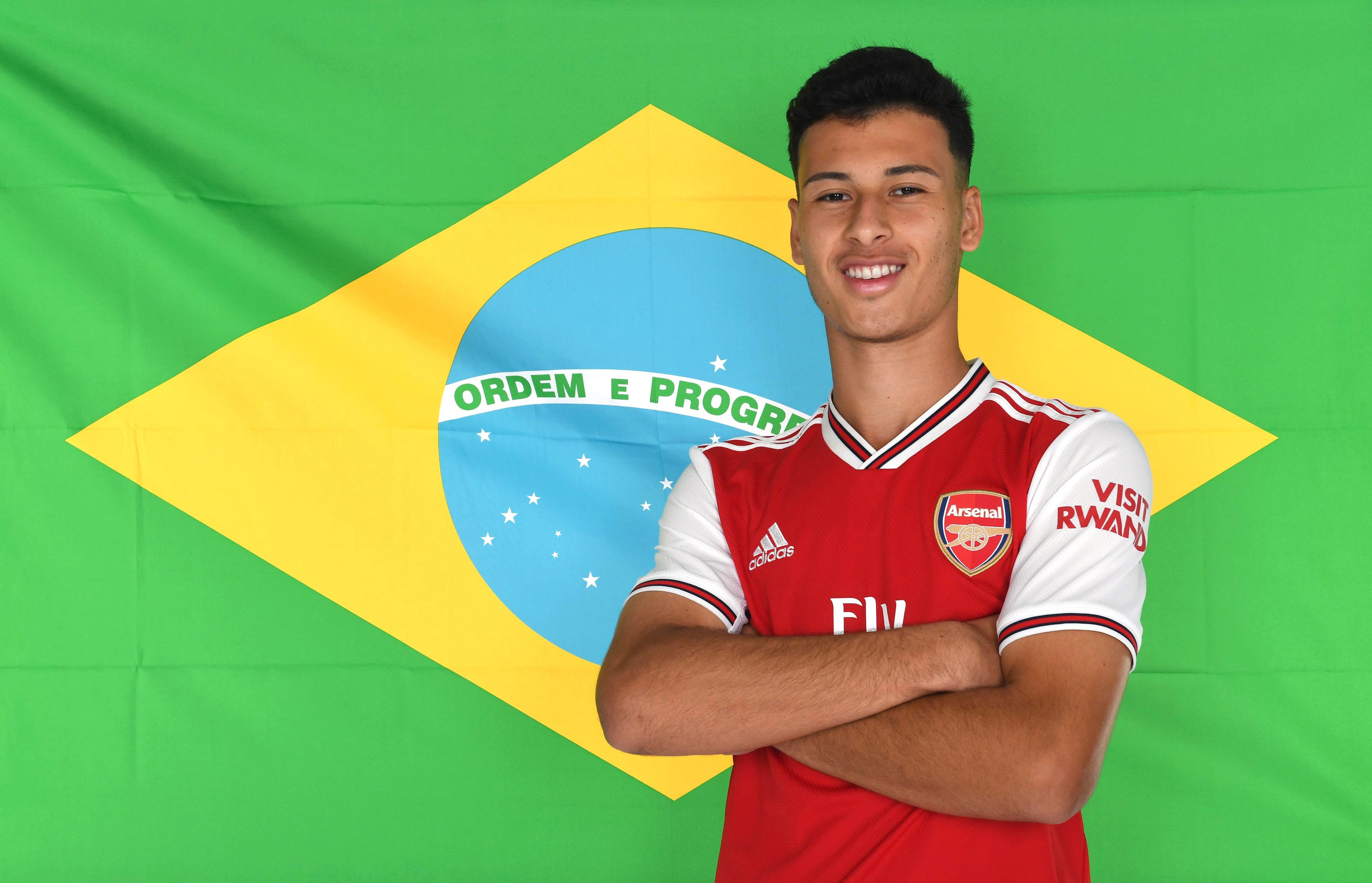
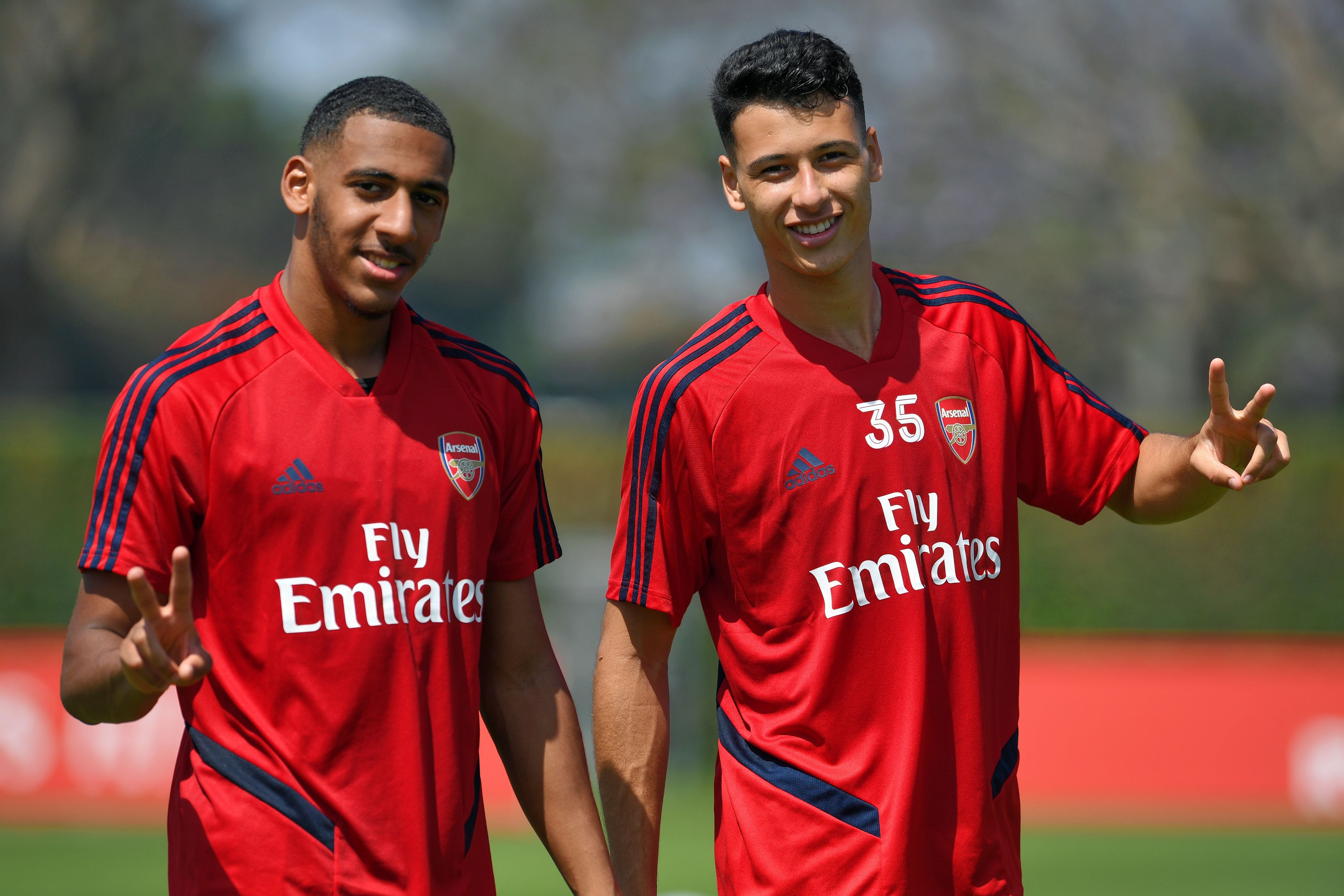
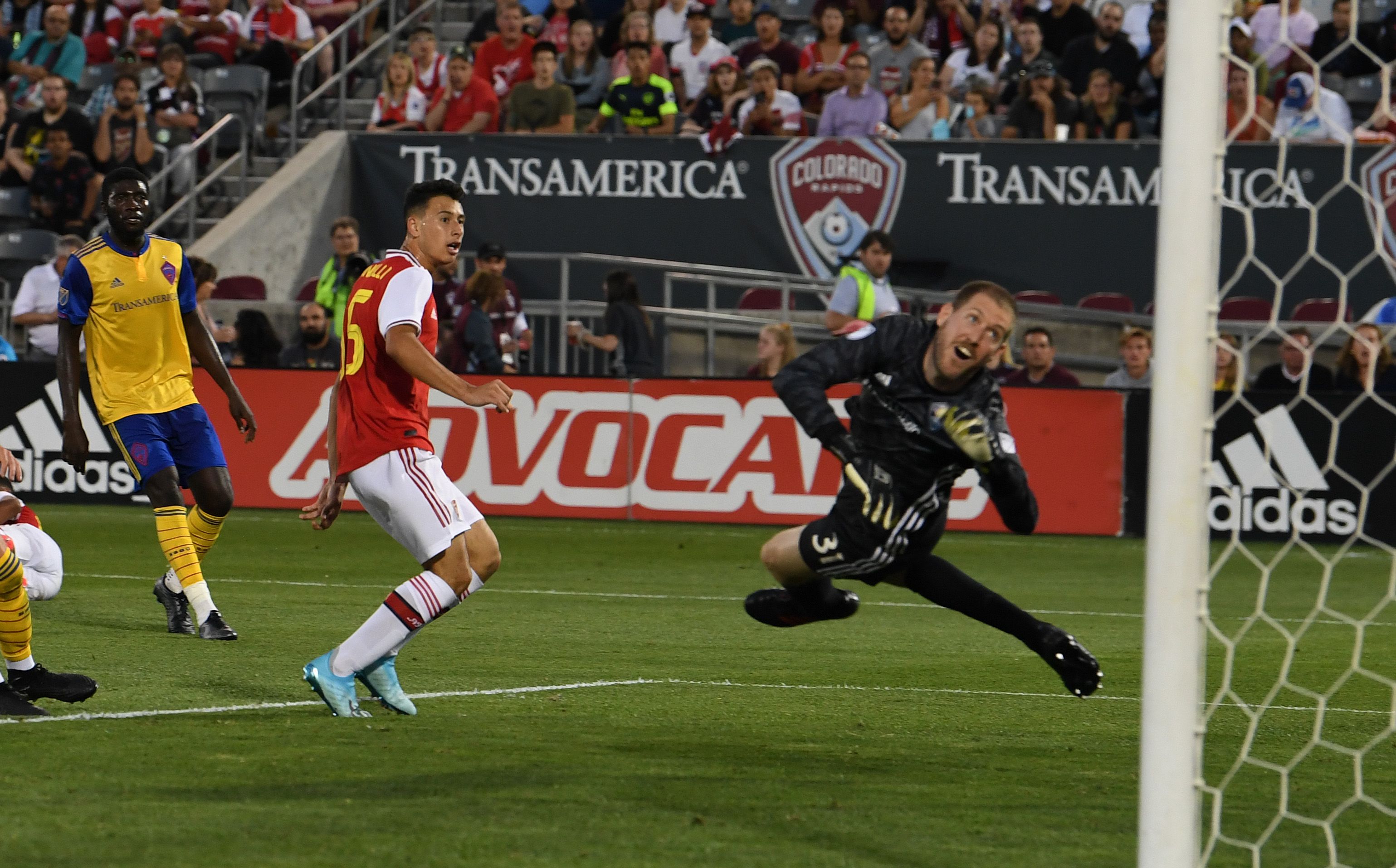
“That first year at Arsenal was very big for me in my development and my career, because everything changed,” says our left-winger, who is now approaching 50 goals for us. “And it all started with my first game, even before the season started, in pre-season.
“We played against Colorado Rapids, and I scored. After the game I remember sitting in the dressing room and thought: ‘Well I’ve got here, but now I know I can do it as well.’ It was big for my confidence.
“I was nervous when I arrived. I had come from Ituano, who at that time were not even in the fourth division. The level was so different so of course you wonder what the step up would be like. All of a sudden I’m at Arsenal, one of the biggest clubs in the world, and it’s a big thing.
I knew what I could do, but at the same time you doubt, ‘Am I ready for this now?’ When I scored that goal though, I knew I could do it, and I was more confident.”
A couple of months later Gabi scored twice on his first start for us – a 5-0 win over Nottingham Forest in the Carabao Cup. 10 days later he bagged another brace on his next start, this time in the Europa League. The boy from Brazil had well and truly arrived.
Unai Emery was patient with him, though. He didn’t make his first Premier League start until December – he scored that day too. But during those early months, Gabi believes that sessions at the Sobha Realty Training Centre were invaluable.
"I was nervous when I arrived. All of a sudden I’m at Arsenal, one of the biggest clubs in the world"
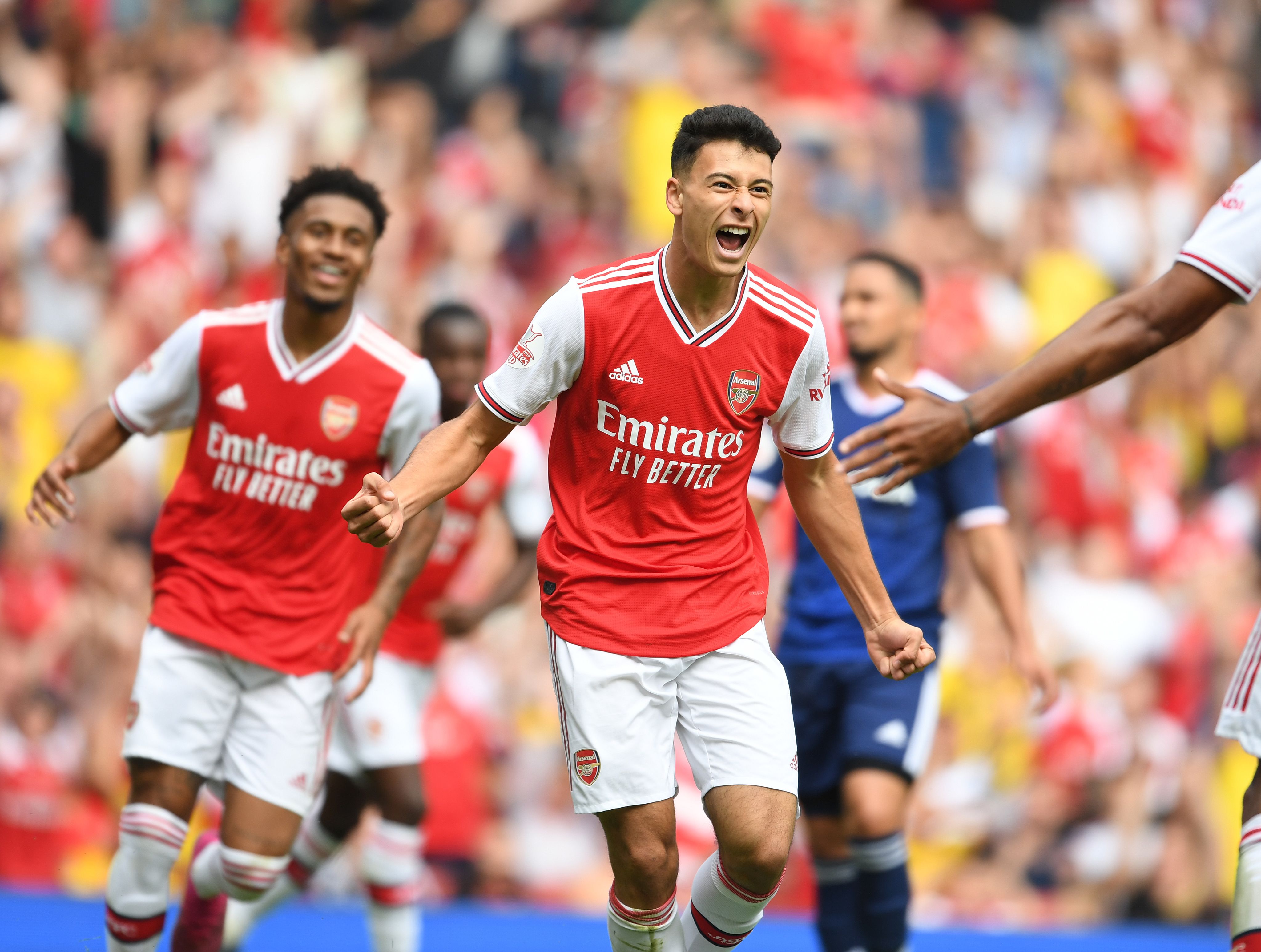

“When I arrived it was very different to what I was used to in Brazil,” he adds. “The weather of course, and the language, but training was also much more intense. That was something I noticed immediately.
“But I enjoyed it, because when you come to Arsenal you know you are going to have to play forward. It depends on the manager as well, and when I arrived here with Unai he helped me a lot. I could talk to him too, because Spanish and Portuguese is not so different, so I could understand him, and that was good for me to settle too.
“But as I say, the difference was huge between the way I was playing there and how we play here. Sometimes I watch my team in Brazil, and I can see the spaces on the pitch and the speed with which they move the ball, and it’s very different to here. Completely different. I am used to it now, but I remember at first the games were very intense. I wasn’t surprised by it though, because it was like our training sessions. Training in those first few weeks and months got me ready for what it would be like in the games.”
Gabi wasn’t just putting in the work on the grass though – there was no rest for him away from football, and he used the time to learn the language, which he now speaks fluently.
“I didn’t speak a word of English when I arrived, so it was pretty hard for me when I first got here, but I was lucky that I had Emi and some teammates to help me. I think it’s good, though, when you can’t rely on those people around you, and you don’t have so many people from your country with you, because it means you have to learn the language and fit in quicker.
“I wanted to learn it as well, and I got injured in my first season, so I spent every day with Jordan the physio, and I had no option but to speak English with him. He knows a bit of Portuguese now as well! I also had English lessons every few days with my teachers Pippa and Sam, and that helped me on the pitch too.
“I didn’t learn any languages at school – I played a lot of cards instead,” he laughs. “I enjoyed my schooldays though, and most of my friends now are the ones I made in school. They always come over to visit. I try to bring them over when I can so they can get to know the country as well, and it’s good to see them.”
Gabi is now deep into his sixth season at the club, making him one of the few players who pre-dates Mikel Arteta’s appointment as manager, and he’s steadily approaching the 200-appearance figure for us.
But longer term, what does the future hold for Gabi. Could he, for example, foresee a future in coaching?
“I have thought about it, but I don’t see myself being a manager. It’s a bit easier for the guys from England, because they are near their families, but for me it would be quite hard to be away.
“It’s not like it’s just a two-hour flight to see them, it’s 12 hours. So that’s why I don’t want to be a manager after football, because I think it’s more stressful than being a player. You are at the training ground very early every day, it’s a lot of work, and being away from home a lot and away from your family.
"Even if I did it back in Brazil, it’s a big country and you would do a lot of travelling. So could I see myself working for a football club? Yes – I just don’t see myself being a manager.
“But who knows? I’m 23, things can change in future. I will definitely do the coaching courses though, just in case. We speak about it sometimes in the dressing room, and I know Jorgi and Neto are keen on it.
“My football philosophy would be to focus on ourselves and attack the opposition. It depends where I would be working though, because if it’s a small club in Brazil you might not have the resources to play like Arsenal!”
But perhaps he’s already starting to think a bit like a coach, as he gains experience. The analysis side of the game is rapidly growing, and Gabi has fully embraced it, although he admits seeing instant results always helps.
“I wouldn’t say I enjoy the meetings on it,” he smiles. “But I do like how it improves you. It’s really important. We watch the games, see what we did right and wrong and how to improve it. It’s important and so good when it helps you in a game. Most of the time I prefer to look at my own performances and how I can improve, but we look at our opponents as well, to see their weaknesses. Then in the games it always happens, always!
"Mikel will have said something about the opposite team, and then it always happens. He will say something like: 'When they are in this position they will play to this guy, and then it happens just like that. Or: ‘If we move the ball like this then there will be lots of space in behind,’ and so of course that helps you when it happens like that when you are on the pitch.”
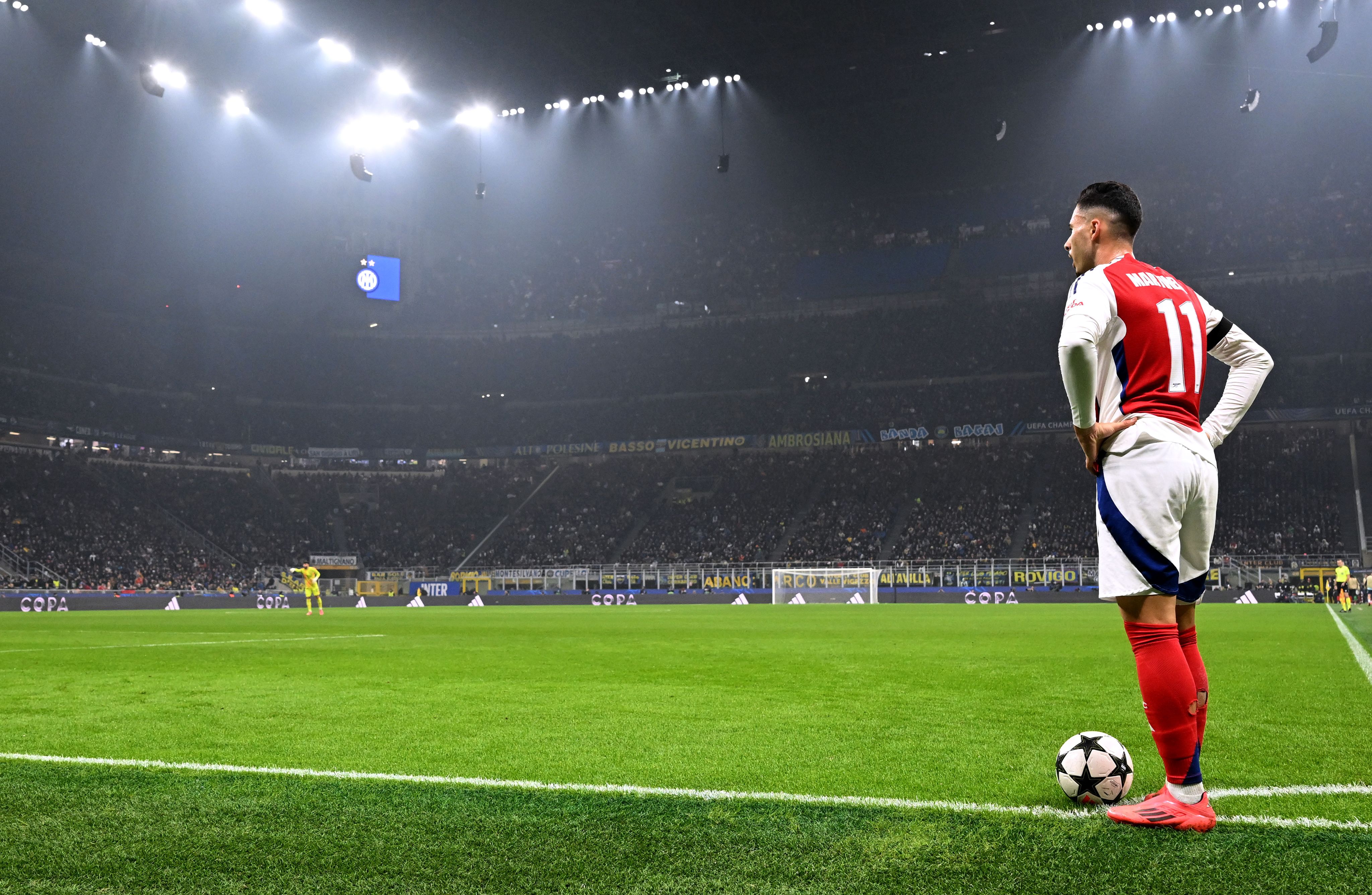
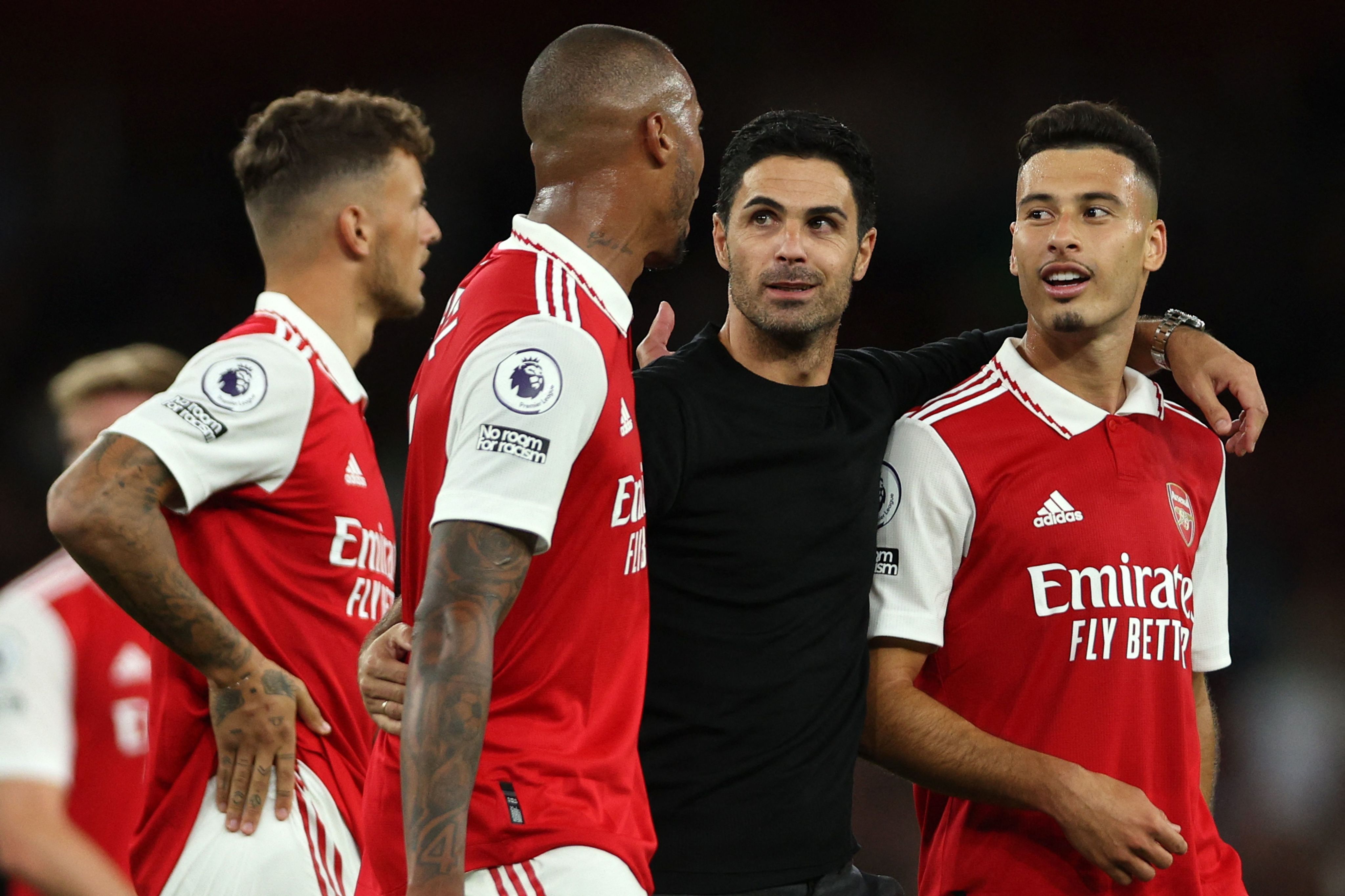
More from our dressing room














